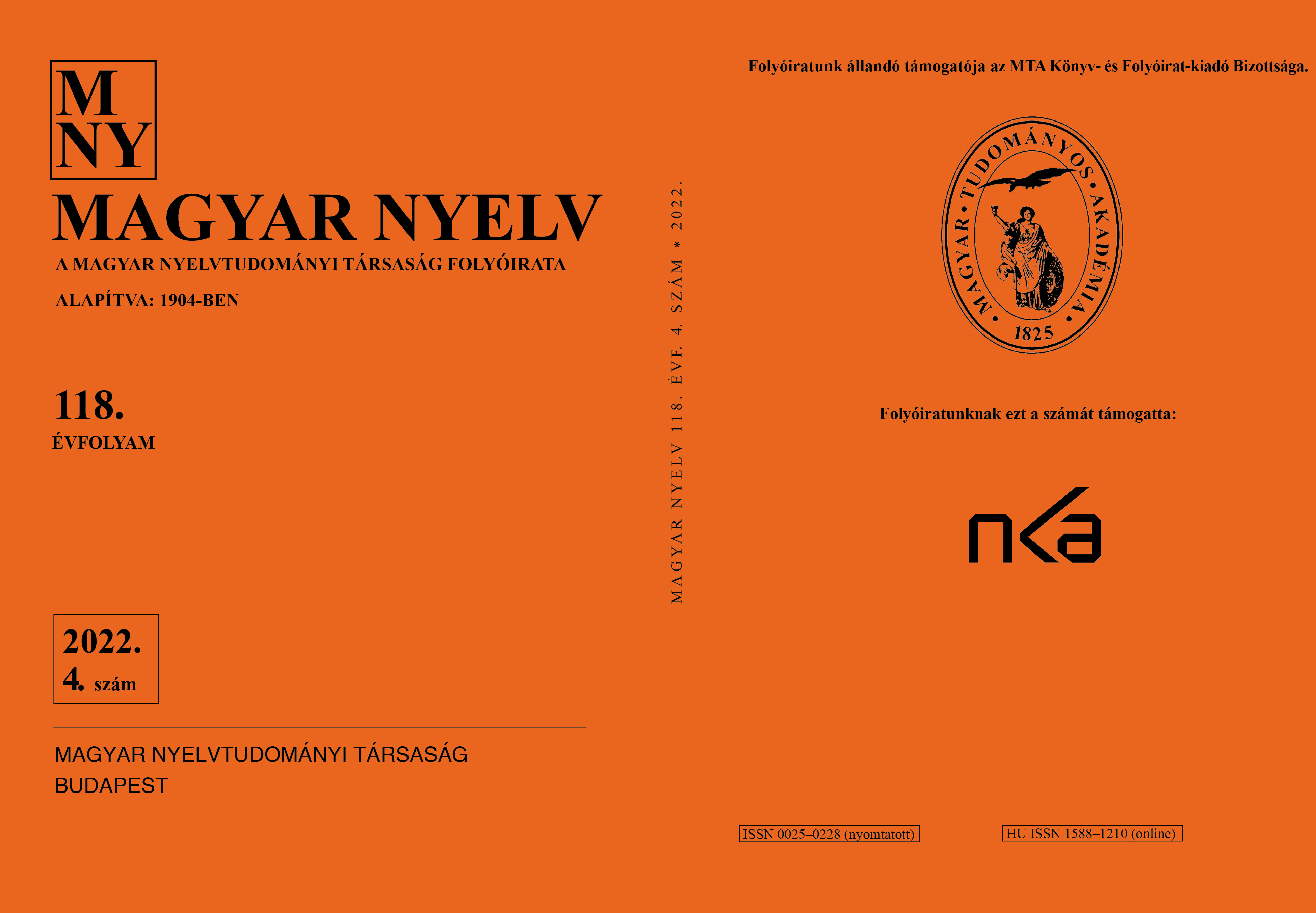On the history of the Hungarian doublet csörc ~ csörsz
DOI:
https://doi.org/10.18349/MagyarNyelv.2022.4.470Keywords:
historical linguistics, etymology, historical lexicology, historical phraseologyAbstract
This paper investigates the meanings and origin of the historically rarely attested, now extinct Hungarian word forms, csörc and csörsz. Although the Magyar nyelvtörténeti szótár (Historical Dictionary of Hungarian) has two different entries for them, the author argues that they are variants of a single lexeme. The word forms are discussed by several authors in the literature but their meanings and usage have not been successfully clarified yet. The proposals are rather varied (e.g. a variant of csősz ‘field guard’, also ‘some bovine’, ‘poor person’, and ‘some kind of tax’). After thoroughly scrutinizing the relevant claims in the literature and meticulously analysing the contexts in which the word forms occur, this paper attempts to clarify their true meanings. It also discusses their etymological issues, how specific meanings may evolve from one another, raising the possibility of a new explanation of origin.
Downloads
Published
Issue
Section
License
Copyright (c) 2022 Tamás Forgács

This work is licensed under a Creative Commons Attribution-NonCommercial-NoDerivatives 4.0 International License.
Magyar Nyelv is a Diamond Open Access periodical. Documents can be freely downloaded and duplicated in an electronic format, and can be used unchanged and with due reference to the original source. Such use must not serve commercial purposes. In the case of any form of dissemination and use, Hungarian Copyright Act LXXVI/1999 and related laws are to be observed. The electronic version of the journal is subject to the regulations of CC BY-NC-ND (Creative Commons – Attribution-NonCommercial-NoDerivatives).
The journal permits its authors, at no cost and without any temporal limitation, to make pre-print copies of their manuscripts publicly available via email or in their own homepage or that of their institution, or in either closed or free-for-all repositories of their institutions/universities, or other non-profit websites, in the form accepted by the journal editor for publication and even containing amendments on the basis of reviewers’ comments. When the authors publicize their papers in this manner, they have to warn their readers that the manuscript at hand is not the final published version of the work. Once the paper has been published in a printed or online form, the authors are allowed (and advised) to use that (post-print) version for the above purposes. In that case, they have to indicate the exact location and other data of the journal publication. The authors retain the copyright of their papers; however, in the case of an occasional secondary publication, the bibliographical data of the first publication have to be included.



